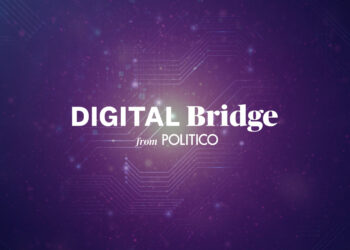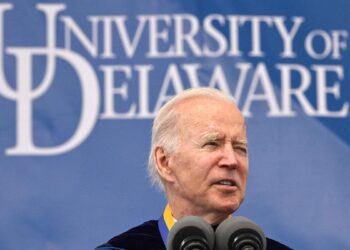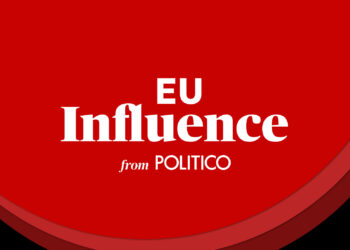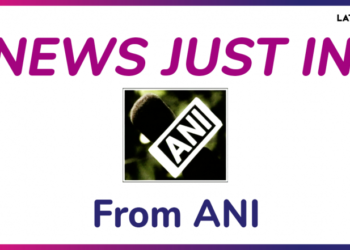Summary
Media freedom and pluralism are a prominent topic in the nascent geopolitics of technology: the waves of hate speech in the media, the guarantee of the right to information and the right to avoid disinformation and misinformation, the protection and empowerment of journalistic profession, and the inference from both governments –authoritarian and illiberal ones– as well as some private companies in the respect for media freedom and pluralism.
In this scenario, the European Commission announced its commitment to prepare a European Media Freedom Act that is expected to be presented in the autumn of 2022. Beyond relevant topics such as the economic impact of the vulnerabilities to media freedom and pluralism, regulation and the role of platforms, public policies and its embedding into the EU’s jurisdictional structure, still the EU has developed for several years a growing, still dispersed, patchwork of policies to address this issue from a geopolitical perspective.
The nexus between media freedom and pluralism jointly with security and rights
The interlink of the EU Media Freedom Act with the EU’s geopolitical approach has several work streams in terms of security and rights.
2010-2015 period: disperse, ad hoc projects through funding mechanisms, with the lens of human rights
It was with the 2011 Arab Spring that the EU has since devised instruments to address digital threats to democracy. This process started with the 2011 “No Disconnect Strategy”[1], released as a tool to support activists’ use of social media as a positive democratic way at a time where authoritarian regimes conducted Internet shutdowns during 2011 and 2012. Concretely, the “No Disconnect Strategy” included some policy areas and funding addressed to media freedom and pluralism (not only large companies, but also NGOs communications and alternative democratic media) on the following topics:
- Funding to support democratic activists build secure communications.
- Campaigns to make European media include digital human rights issues as part of their broadened concept of corporate social responsibility and ESG+ investments.
- Protection from Internet shutdowns and surveillance from authoritarian regimes.
- Funding for projects on online privacy, activists’ online education and usage of media outlets, blogs and alternative forums, and on how to cooperate with other media groups to make outreach of news and issues.
However, when the Arab Spring did not prove to be successful in most countries, the “No Disconnect Strategy” was reduced in terms of budget and priority topics. Many projects were cut in EU Delegations. The issue of digital repression was left out of the projects of support democratic reform in these countries.
In 2014, EU Human Rights Guidelines for Freedom of Expression Online and Offline[2]was seen as an attempt to revamp digital repression as part of EU’s external policy. The guidelines stress that ‘all human rights that exist offline must also be protected online, in particular the right to freedom of opinion and expression and the right to privacy.’ These rights ‘must be respected and protected equally online as well as offline’. When it comes down to execution, measures were largely soft tools with no mandatory implementation or oversight.
However, there were some solidified policy actions, directly related to media freedom and pluralism, and in particular the protection of journalists, media actors, human rights defenders, political activists, and other individuals making use of media:
- Technical support was the most tangible output.
- The need to establish political dialogues with third countries to monitor and report on online freedoms developments and to raise restrictions against online freedoms.
- Outreach to a Cyber Security Officer as point of contact from a third country was promised.
- The EU aimed to monitor online restrictions in candidate countries through pre-accession processes.
- The EU might decide on possible suspension of cooperation, notably with regards to financial assistance, in case there are abusive restrictions on freedom of expression and violence against journalists and other media actors.
2016-2022: new layer of security and foreign policy, high-level strategy documents, although incremental policies and institutional coordination are needed
While in the 2010-2015 period, media freedom and pluralism have been addressed through the lens of specific, ad hoc projects with tailored funding mechanisms and guidelines -and mostly as a human rights topic-, in 2016 this issue was addressed for the first time as a security and foreign policy aspect, and it was channeled through a high-level strategy document.
Media freedom, more than media pluralism, has been part of EU-led security and foreign policy documents for several years. The strategy document “Global Strategy for the European Union’s Foreign and Security Policy”[3], published in 2016, mentioned the security issues posed by media freedom in two areas:
- Counter-terrorism policy: the need to foster shared alerts on violent extremism, terrorist networks and foreign terrorist fighters, as well as monitoring and removing unlawful content from the media. Some related policies were included, such as the need to deepen the work on education, communication, culture, youth, and sport to counter violent extremism, being all these areas affected by media freedom and pluralism.
- Strategic Communications: it referred to the importance of investing in and joining up public diplomacy across different fields; the need to have consistency and speed of messaging when crises arise; and the need to foster an open and inquiring media environment within and beyond the EU, also working with local players and through social media.
With regards to other policy areas, neither cybersecurity nor the Neighborhood Policy included any reference to media freedom and pluralism. The second is particularly relevant when it comes down to preventing accession candidates from receiving disinformation and fake news from third countries, or from reducing the number of media pluralism on the ground.
It was not until 2022 that the European External Action Service broadened the scope of media freedom and pluralism as a key element of its security and foreign policy. Through the newly released Strategic Compass[4], which is the update of the Union’s Strategy vision, media freedom and pluralism were addressed in several policy areas.
- Hybrid threats and foreign information manipulation and interference: To prevent hybrid threats and foreign information manipulation and interference (FIMI), the Strategic Compass foresees the strengthening and access to credible information and free and independent media across the Union. Several policy tools are considered: the European Democracy Action Plan (which will be analyzed later), the necessary building-up of a future EU Toolbox to address and counter FIMI, including in the EU-led Common Security and Defense Policy (CSDP) missions and operations. Also, the participation of a free and plural media is strategic to ensure that the EU is able to strengthen their response options, resilience capacities and cooperation within the EU but also with third partner countries in case there is any information-related crisis or challenge where media could contribute to.
- Cyber Diplomacy Toolbox: In 2017, the European Union released its first Cyber Diplomacy Toolbox, which is the joint EU diplomatic response to malicious cyber activities. It is part of the Common Foreign and Security Policy (CFSP) and it aims to add up the cybersecurity layer to the already-existing tools at the external policy branch of the EU in three areas: to contribute to conflict prevention, to mitigate cybersecurity threats, and to provide greater stability in the international order. To this end, the EU Cyber Diplomacy Toolbox articulates two main areas of work: common attribution and cyber-sanctions. Common attribution is not a EU-led attribution. It means that all 27 Member States agree on a common attribution and they condemn it jointly -as a sum of voices. It does not represent a single voice from the EU. With regards to cyber-sanctions, it includes diplomatic “restrictive” measures within the EU Common Foreign and Security Policy that can be used against malicious operations directed against member states in cyberspace. The response must ne proportionate to the scope, scale, duration, intensity, complexity, sophistication and impact of the cyber activity.
While it is not directly linked to media, nor media freedom and pluralism, the Cyber Diplomacy Toolbox will be encompassed hand in hand with the potentially future EU Toolbox on Foreign Information Manipulation and Interference which is expected to be released in 2023. This second EU Toolbox will be strategic because it will likely include restrictive measures on third actors which are hindering media freedom and pluralism, by means of disinformation, fake news, interference, elimination of transparent, open media competitors, and monopolization or centralization of a few media outlets controlled by governments in authoritarian and illiberal countries.
Alongside this high-level strategy documents, there are other initiatives that have been released by the European Union when it comes down to ensuring media freedom and pluralism vis-à-vis security.
First, international Electoral Observation Missions (EOMs) have added up a new layer of digital-related challenges and threats into their work. Concretely, EOMs aim to protect, guarantee, respect and promote media freedom, analyze information flows in social media during electoral days, and to guarantee a safe, open, and democratic online debate in third countries, which are either like-minded or partner countries to the EU. This is especially relevant in those third countries where there are EU Delegations, diplomatic spaces which are increasingly receiving internal training on how to protect digital rights in this realm. There is a monitoring system to make sure all indicators are effectively addressed on the ground when there is any issue related to digital threats, but still the methodology is not comprehensive, and it might be broadened and sophisticated.
Second, both the headquarters level and some EU Delegations’ funding priorities have set out media pluralism as an increasingly important priority in repressive countries and in areas of conflict, where polarization is accelerated through media. In this case, there are some disperse funding initiatives, such as the European Instrument for Democracy and Human Rights (EIDHR) which already launched a global call on digital activism in 2018 and has identified media freedom as priority since 2019. Also, the Media4Democracy project supports EU Delegations to promote several areas: “combating violence and threats to online freedom of expression; promoting laws and practices that protect freedom of expression; promoting media freedom and pluralism and discouraging interference with impartial and critical reporting; promoting and respecting human rights in cyberspace; and promoting legal amendments and practices to strengthen data protection and privacy”[5]. There has been a growing number of proposals on media freedom and pluralism at EU Delegations in third countries with repressive, illiberal, or authoritarian governments.
Third, Internet shutdowns also have implications on media freedom – not because information is altered, but because information is blocked. This is important in government-backed Internet shutdowns, and particularly in those countries of strategic interest for the EU.
Table 1. Number of Internet shutdowns and throttles by country, by ordering institution, by cause type in 2021 (in absolute numbers)
| Country and institution | Communal violence | Elections | Exam cheating | Information control | Other | Political instability | Protests | Religious holiday / anniversay | Unknown | Visits by government | Total general |
|---|---|---|---|---|---|---|---|---|---|---|---|
| Afghanistan | 1 | 1 | 1 | ||||||||
| Algeria | 1 | 1 | |||||||||
| Bangladesh | 1 | 1 | 2 | ||||||||
| Burkina Faso | 1 | 1 | |||||||||
| Chad | 2 | 2 | |||||||||
| China | 1 | 1 | |||||||||
| Congo | 1 | 1 | |||||||||
| Cuba | 3 | 1 | 4 | ||||||||
| Eswatini | 2 | 2 | |||||||||
| Ethiopia | 2 | 1 | 3 | ||||||||
| Gabon | 1 | 1 | |||||||||
| India | 7 | 4 | 3 | 80 | 9 | 2 | 1 | 106 | |||
| Indonesia | 1 | 1 | 2 | ||||||||
| Iran (Islamic Republic) | 1 | 3 | 1 | 5 | |||||||
| Iraq | 1 | 1 | 2 | ||||||||
| Jordan | 2 | 1 | 1 | 4 | |||||||
| Kazakhstan | 2 | 2 | |||||||||
| Myanmar | 7 | 3 | 4 | 1 | 15 | ||||||
| Niger | 1 | 1 | |||||||||
| Nigeria | 2 | 2 | |||||||||
| Oman | 1 | 1 | |||||||||
| Pakistan | 1 | 1 | 2 | ||||||||
| Palestine, State of | 1 | 1 | |||||||||
| Russian Federation | 1 | 1 | |||||||||
| Senegal | 1 | 1 | |||||||||
| South Sudan | 1 | 1 | |||||||||
| Sudan | 1 | 1 | 3 | 5 | |||||||
| Syrian Arab Republic | 2 | 2 | |||||||||
| Tajikistan | 1 | 1 | |||||||||
| Turkmenistan | 1 | 1 | 2 | ||||||||
| Uganda | 2 | 1 | 3 | ||||||||
| Uzbekistan | 1 | 1 | |||||||||
| Yemen | 2 | 2 | |||||||||
| Zambia | 1 | 1 | |||||||||
| Total general | 7 | 6 | 11 | 14 | 8 | 89 | 39 | 2 | 5 | 1 | 182 |
Also, the EU Media Freedom Act should assess to what extent it might be interrelated to:
- The EEAS’ external policy work, when it comes down to defining which type of institution ordered the shutdown or throttle (executive government, local government, military, non-government, non-state government);
- To ENISA and the EU Intelligence and Situation Centre (EU INTCEN), to gather comprehensive data and frame the shutdown extent (full network, service-based, or both).
Additionally, Internet shutdowns open up an additional debate on corporate responsibility, compliance and the role of technology companies as geopolitical actors: how the EU Media Freedom Act should interact with the Digital Services Act when third-country technology companies are asked to block, restrict or provide information flows to an authoritarian government. For example, the EU Media Freedom Act should ‘talk to’ the Digital Services Act and the European External Action Service to agree on whether 48 hours as the defined period of time to eliminate a content in social media in a government-backed partial Internet shutdown is adequate.
Also, the EU Media Freedom Act should interact with the growingly instruments and EU-funded programs to combat Internet shutdowns, arbitrary or indiscriminate digital surveillance and data retention to promote civil society online and digital rights dialogues.
This means that the EU Media Freedom Act may be leveraged through the EU Action Plan on Human Rights and Democracy 2020-2024, concretely in three policy measures that are drawn in the document:
- The strengthening of programs in third countries to address civil society organisations’ and independent media’s online media literacy;
- The capacity to detect, expose and raise public awareness on disinformation and information manipulation;
- The need to support independent and credible fact-checking and research, investigative reporting and journalism, including at the local level, in third countries where the EU has set up projects with.
Finally, the EU Media Freedom Act is also woven by the so-called Foreign Information Manipulation and Interference (FIMI). While the EU Media Freedom Act is mostly focused on harnessing a solid internal market with a larger number of independent media, with greater transparency of media ownership and of the allocation of state advertising, and the promotion of public service media, the Media Freedom Act also touches on political interference in editorial decisions and against surveillance.
Policy recommendations
The EU Media Freedom Act cannot overlook its geopolitical implications. As it has been shown, there are many workstreams that this framework should take into account, as well as areas other EU initiatives should have in mind when encompassing the EU Media Freedom Act.
- The EU Media Freedom Act should align with the EU Action Plan on Human Rights and Democracy 2020-2024’s goal to promote adequate due diligence, including mitigation plans, and effective rights impact assessment and the promotion of the right to an effective remedy, when new technologies affect democratic processes.
- Engage policy officers working on the EU Media Freedom Act in consultations with technology companies, service providers, academia, civil society and NGOs.
- The EU Media Freedom Act should be included as part of EU’s international partnerships with third countries:
- In the EU-US Trade & Technology Council, notably through the Working Groups 5 (data governance and technology platforms) and 6 (misuse of technology threatening security and human rights).
- In the upcoming EU-India Trade & Technology Council, especially considering that India is the country with the highest amount of government-backed Internet shutdowns in the world according to existing data. The EU should put the focus on (1) creating a free, open and plural media ecosystem in India, and (2) deepening regulatory cooperation with India in terms of the Digital Services Act -with regards to media freedom- and the Digital Markets Act -with regards to media pluralism.
- In the EU’s Digital Partnership Agreements with Japan, Singapore and South Korea, and support to the ASEAN Digital Masterplan: although some of these partnerships might not include agreements on data flows and regulatory cooperation, the EU should attempt to foster at least a minimum level of guidelines or best practices on how to ensure an open, free and plural media ecosystem in both sides. Also, the EU might cooperate with these countries to implement funded projects in third countries in the Asian region on this topic.
- In the EU-LAC Digital Alliance to be launched by 2023: among other policy lines, the focus should be put onto preventing Latin America and Caribbean media from experiencing FIMI (foreign information manipulation and interference) from third countries such as China and Russia, and also on ensuring a fully actionable media ecosystem across all countries, reducing the market concentration of a few media companies.
- In the Global Gateway: the focus should be similar, but it should also have a focus on hardware (infrastructure).
- Promote “regulatory convergence” with third countries. This is particularly relevant, because the proposal on the Media Freedom Act aims to promote cross-border coordination tools and EU-level opinions and guidelines, to protect users of media services from illegal and harmful content, including service providers from third countries not following EU media standards, to promote media regulators against rogue media service providers, including those that are state-controlled, be it financially or editorially by certain third countries, and to establish specific guidelines on how to interact with media services from third countries which might pose risks to public security and defense.
- Enlarge the number of funding projects and call for tenders to implement projects on the ground on digital security for media outlets, alternative media and journalism groups; broaden the period of time for implementation; and make sure there is a monitoring mechanism alongside mere reporting.
- Institutionalize media freedom and pluralism as another transversal element of institutional coordination across EU institutions, Directorate-Generals (DGs) and agencies.
- Carry out an impact assessment of the EU Media Freedom Act on existing EU initiatives on export controls, investment screening, Foreign Direct Investment, and trade policy on digital assets, media monopoly and strategic technologies that impinge on the development of an open and plural media (such as cloud, multi-cloud, Internet of Things, cybersecurity, cyberresilience, and data interoperability).
- Evaluate the geopolitical impact of the EU Media Freedom Act on Big Tech companies’ corporate responsibility, compliance and the role of technology companies as geopolitical actors. For example, how the EU Media Freedom Act should interact with the Digital Services Act when third-country technology companies are asked to block, restrict or provide information flows to an authoritarian government.
- Involve European fact-checking groups (previously verified under EU-agreed criteria) into the work carried out by EU Delegations on the ground to implement projects.
In conclusion, while the EU Media Freedom Act is still to be defined and its main core of work focuses on the internal market, it has strong implications on the EU’s geopolitics of technology approach, regarding security, economic issues and rights, but also in the way third countries which are of interest for the EU –either like-minded or partners– might define its own media freedom framework in the coming future. This paper calls for the EU Media Freedom Act to broaden its ties with other existing EU documents. The external technological projection of the EU and its internal market are not separate topics; they are mutually dependent.
[1] European Commission, Press release: Digital Agenda: Karl-Theodor zu Guttenberg invited by Kroes to promote internet freedom globally, 12 December 2011
[2] Council of the European Union, ‘EU Human Rights Guidelines for Freedom of Expression Online and Offline’, Foreign Affairs Council, 12 May 2014.
[3] European External Action Service (2016), Global Strategy for the European Union’s Foreign and Security Policy.
[4] European External Action Service (2022), Strategic Compass.
[5] Dorota GŁOWACKA, Richard YOUNGS, Adela PINTEA, Ewelina WOŁOSIK (2021), Digital technologies as a means of repression and social control. European Parliament coordinator: Policy Department for External Relations, Directorate General for External Policies of the Union. PE 653.636 – April 2021.
Image: Press conference by Věra Jourová, Vice-President of the European Commission, and Thierry Breton, European Commissioner, on the EU Media Freedom Act (15/9/2022). Photo: Christophe Licoppe – EC Audiovisual Services / © European Union, 2022.
Read the full article here

















